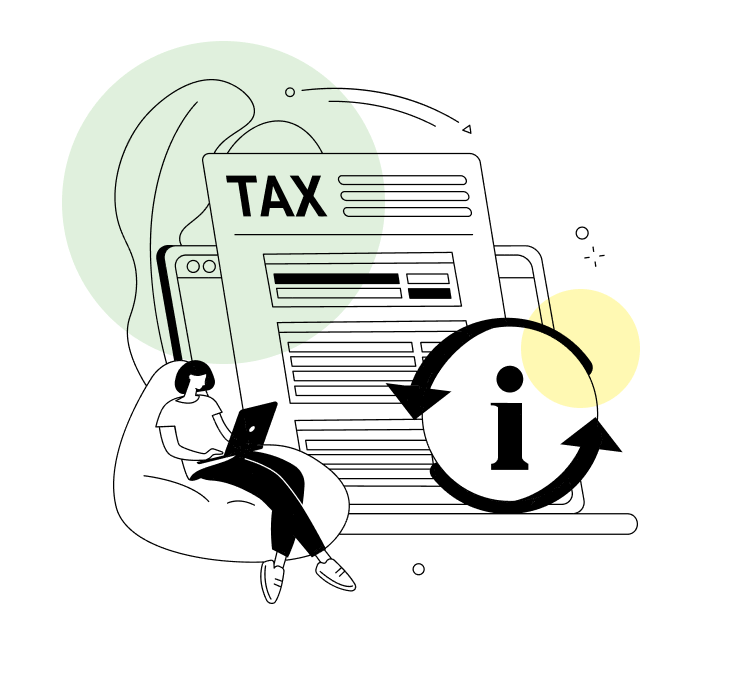How Long Should You Keep Your Old Income Tax Records?

Emily Verrecchia
October 26, 2022 | 3 Min Read
Updated for tax year 2025

Do you secretly worry that if you put your winter clothes away, it’ll snow? Or that throwing away the receipt for an appliance will cause it to start malfunctioning?
This is exactly the kind of magic thinking that exists around old tax returns: the fear that if you toss them, you’ll need them. While it may be comforting to hang on to tax records until your file cabinet groans under the weight of decades-old returns and receipts, it really isn’t necessary.
Here’s everything you need to know about why you have to hang onto your tax records — and when and how you can get rid of them without anxiety or regret.
Key Takeaways
- Save your tax returns and any supporting documents for six years.
- One of the reasons to keep income tax records is to provide the CRA with the required information in case you’re selected for a review.
- Written permission is required to destroy tax records before the end of the six year period.
How long should I hang onto my old tax returns?
Contrary to the stuff of nightmares, there’s only so far the Canada Revenue Agency (CRA) can dig into your tax history – six years to be exact. This is the length of time you’re legally required to hold onto old tax returns and supporting documents.
The six-year period starts at the end of the tax year to which the records relate. For example, a 2021 return and its supporting documents are safe to destroy at the end of 2027.
If for whatever reason, you wish to destroy your tax records before the six year period is up – say you’re moving to Fiji and want to travel light – you’ll have to get written permission from the CRA first.
What do income tax records include?
Even if you weren’t required to attach information slips, receipts, and expenses at the time you filed or e-filed, they’re an essential part of your tax record. In addition to your tax returns, here’s a laundry list of the supporting documents you’ll need to produce if the CRA comes calling. Be sure to hang onto every scrap that applies.
Why do I need to keep my income tax records?
You need to hang on to your old tax records for the simple reason that the CRA may want to review them.
If this is the case, they’ll send a request for information that asks you for your supporting documents. What happens next is simple, and not scary. All the CRA will do is cross-reference these docs with the information you provided on your tax return. Think of it as a spot check to ensure your reporting is accurate.
If, in the highly unlikely event the CRA wants to audit you, your old tax records will also play a starring role. And again, having them all in one place will make the process so much smoother and less stressful.
Can I get rid of my income tax records after six years?
Get the tax support you deserve.
No matter why the CRA is asking to see your income tax records, TurboTax has your back. Our tax experts can answer all your questions and even handle the CRA on your behalf if you get audited.
Get Started
Emily Verrecchia
Emily has been an accounting aficionado since 2005 working mainly in the investment and real estate sectors. She has had the pleasure of running her own bookkeeping business, as well as helping individuals with planning for and filing their individual tax returns. Her wanderings have allowed for much experience and perspective. She now works as a Tax Expert and gets to write about taxes and personal finance with TurboTax Canada. When she is not looking up new tax credits, she is spending time with her highschool sweetheart, Eric and their two children whom she adores, Annabelle and Taylor. Her weakness is her mini Aussie, Maple. In her spare time, she immerses herself in her Reiki studies to experience some contrast and reset her soul!
Related articles

© 1997-2024 Intuit, Inc. All rights reserved. Intuit, QuickBooks, QB, TurboTax, Profile, and Mint are registered trademarks of Intuit Inc. Terms and conditions, features, support, pricing, and service options subject to change without notice.
Copyright © Intuit Canada ULC, 2024. All rights reserved.
The views expressed on this site are intended to provide generalized financial information designed to educate a broad segment of the public; it does not give personalized tax, investment, legal, or other business and professional advice. Before taking any action, you should always seek the assistance of a professional who knows your particular situation for advice on taxes, your investments, the law, or any other business and professional matters that affect you and/or your business.









